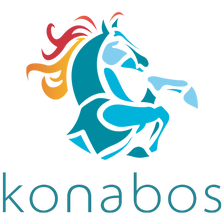10 Benefits of Updating from a Monolith to a High Performing Modular DXP
Konabos Inc. - Konabos
12 Jul 2021
What is a Digital Experience Platform?
In recent years, companies have invested heavily in Digital Experience Platforms (DXP) to enhance the customer experience by offering consumers a relevant digital experience across all channels and touchpoints through customer data to make the buyer’s journey exciting and personalized.
According to Gartner, “A digital experience platform (DXP) is an integrated set of core technologies that support the composition, management, delivery, and optimization of contextualized digital experiences.” Essentially, DXPs allow brands to evolve from the traditional coupled CMS to incorporate an as-a-service model and provide analytics, personalization and automation tools, and e-commerce under one framework to create an omnichannel experience.
In a Salesforce survey, 84% of customers believe that any interaction with a brand is just as important as the product and services they offer. Now more than ever, consumers access content through numerous devices, such as tablets, mobiles, and even smartwatches. The future of marketing lies within the digital experience and the ability of brands to identify and fulfill the rapidly evolving expectations of consumers.
DXPs have been a gamechanger when it comes to delivering a full-on customer digital experience. Like the evolution of the customer experience, DXPs have also evolved from a traditional monolith platform to a high-performing Modular DXP.
Below we will explore the main difference between a monolith and a modular DXP and why the success of an exciting omnichannel experience depends on implementing an agile customer-focused Modular DXP to future-proof your business.
Traditional DXP vs Modular DXP: How they differ
The DXP model promises to deliver a great experience in a fast-paced era where change is inevitable. What were promising features during the early years of the traditional monolith, quickly turned into an expensive technology that, to this day, is slow to adapt to the continuous evolution of the digital world?
Traditional DXPs offer a set of packaged capabilities, each with its own functions, in a single software solution all handled by a single vendor under the same framework. This vendor lock-in makes it difficult to keep up with the latest technology and remain innovative in a world where customer demands rapidly change. The high costs and complex process of integrating additional software in a monolithic DXP and the outdated vendor practices ultimately affect a company’s ability to compete.
In comparison, the modular DXP approach was created to break down siloed data and offer greater flexibility by removing the complexities of software integration of monolithic DXPs. These modern platforms are meant to be easy to use and integrate and have the full potential to enhance and adapt to a company’s existing stack.
The modular approach uses the MACH architecture principles: Microservices, APIs-first, Cloud Native SaaS, and Headless infrastructure. This approach leverages microservices that are connected via the cloud through APIs to offer consumers delightful personalized omnichannel experiences at lightning speed.
Brands are under pressure to exceed consumer’s expectations through relevant channels and throughout all devices. Consumers are not only hoping for a good experience; they demand one, making it essential for brands to adapt to these ever-changing needs. This is where the modular DXP approach comes in to identify and anticipate these needs and deliver results efficiently, quickly, and proactively.
10 benefits of Switching to a Modular DXP
With the rapid evolution of technologies, brands need a flexible architecture that will be ready to take on the future of marketing. Let’s look at the ten benefits of switching to Modular DXPs and how this can help you create a rich and personalized digital experience to exceed consumer expectations.
Uses a Best of Breed Approach

Unlike traditional DXP, MACH architecture allows you to select the best-of-breed technology and eliminate the less than stellar add-ons that come with software suites. This upgrade is a huge advantage as your platform will enable you to build your stack and not get bogged down by redundant software.
Allows for Seamless Integrations

Modular DXP makes integration easy thanks to the use of APIs, an integral part of its technology, by allowing you to seamlessly combine all your platforms, tools, and microservices in your daily operations. These APIs will enable you to pull data from your different platforms and use it to deliver a quality content experience across all channels.
Customizes Your Stack Freely

One of the most significant drawbacks with traditional DXPs is the dreaded vendor lock-in that prevents companies from customizing solutions based on their needs and forcing them to alter their strategies to align with the options of the platform. Modular DXP allows for a more customized experience through the creation of a tech stack based on company needs and objectives.
Provides an Omnichannel Customer Experience
Modular DXPs enable you to push marketing campaigns and digital content across all channels to maintain a constant presence and reach your customer no matter where they are and regardless of which device they use—managed through a central platform, the seamless process is every busy marketer’s dream.
Customer-Centric Focus

The customer experience comes first through incorporating only the best technologies available, and brands can now gather all the information required to reach consumers at every touchpoint and provide a superior customer experience.
Strong on Personalization
By integrating microservices, such as web analytics, into your tech stack, your marketing team can create content that is personalized for specific touchpoints and target your audience with the right message at the right moment to influence purchasing decisions.
Marketer Friendly
Working in silos is a marketer’s nightmare and prevents them from delivering the best personalized content possible. By streamlining the process, marketers have all their tools integrated and at their disposal, so they can focus on the customer experience rather than synching their tools.
Provides Better Collaboration Between Teams
Because front-end and backend are decoupled, designers and developers can use all the tools they need without limitation and without having to worry about unexpected shutdowns that would delay the entire workflow. This allows teams to create on the spot without worrying about how this might affect the whole infrastructure.
Cloud-Based
Through the use of cloud technology, modular DXPs allow different team members to edit and make changes to content in real-time without affecting the workflow in progress.
Future Proofs Your Business

Customers have ever-changing needs, and the key to a successful customer experience is anticipating these needs ahead of time and fulfilling them immediately across omnichannel and at every touchpoint. Modular DXP integrates technological changes and upgrades to keep up with the changing landscape of the customer journey. Modular DXPs provide the perfect framework to integrate the best applications to digitally transform your business and remain innovative and ready to future-proof your brand.
Brands that want to exceed customer expectations across all channels and enhance the user journey need the proper tools integrated into their modular architecture ecosystem.
Traditional DXP and CMS solutions are just not equipped to deal with emerging technologies, whereas modern DXPs provide you with all the tools developers require to integrate seamlessly and build the best architecture and provide marketers the ability to deliver on all channels and devices. Modular DXP is the way to go to future-proof your business in an evolving digital world.
Contact us for a complementary DXP consultation today

Konabos Inc.
Yay to Konabosing in style! Content tagged with the Konabos handle is produced by two or more Konabos team members.



Share on social media